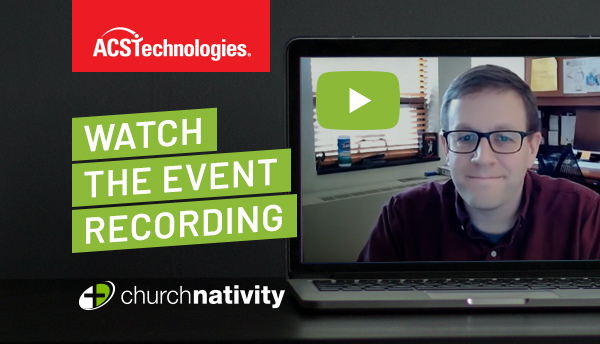A recent article by Terence Sweeney is titled “Vatican II didn’t fail. It’s just getting started”. October 11, 2022, marked the 60th anniversary of the Vatican Council. Over the past year and especially the past month, there has been somewhat heated discussion about the merit or lack of merit of the outcomes of the council, along with proposals about what to do now. Some go so far as to suggest returning to ritual tradition before Vatican II.
Tradition, Scripture, and the magisterium “are so linked and joined together that one cannot stand without the others.”
(Dei Verbum 10).
At the same time, there is much discussion about the demise of Christendom and the emergence of a new Apostolic Age. Msgr. Shea et al. gave us a very helpful and useful characterization of what has happened in his book “From Christendom to Apostolic Mission.” Michael Dugan writing for ChristLife says: “Echoing recent popes’ calls to a “new evangelization,” the author explains how our pastoral strategies will be woefully ineffective if we continue in a “Christendom” age mindset when in truth we are in a new Apostolic age…If we do not recognize that the culture is changing, then the efforts of the Church to bring people closer to God will be ineffective and fruitless”.
ICSC
In my presentation for the International Stewardship Conference (ICSC) earlier this month, I reminded attendees that Jesus did not wait for people to show up to hear him. He went out among the people. Many of the biblical stories feature His interaction with the people he encountered along the way. They were not planned interactions. He interacted with them in their place and environment; He listened and experienced them from their perspective. His model is a perfect example for us today. Look outward. Go out.
How often have you heard someone say we need to “meet people where they are”? As Pope Francis says: “living with the smell of the sheep”. Today that is more true and more literal than ever. Our response in Apostolic times needs to be more welcoming, hospitable, and personal. Growing parishes are attentive to welcoming people and inviting them to participate in small groups and other ways that allow them to become part of the community. Yes, ultimately, our prayer is that people will encounter Christ through the Holy Spirit, but the first step is to build a sense of belonging with the parish community and establish a bridge of trust between the people.
Focusing Outward
Thriving parishes like St. Columbkille in Parma, OH, are intentionally focused outward. Fr. Anthony Suso sees the importance of building both an online and in-person community. He seeks ways to minister personally, even to those attending online Mass: “We want to be able to interact with them. That isn’t going away, you know. And these people are just as valid as the people in our pews, so we want to be able to care for them, too.” He extends this view to the broader community, fostering a culture where parishioners recognize that everyone who engages with the parish – no matter how tenuously – seeks a relationship with God through the Church. Father Anthony says: “to care for people is ultimately what makes Catholicism credible. It’s how tangible we are, how incarnational we are.” Now that is a parish I would want to join!
Vatican II provides us with the foundation for moving forward in this Apostolic time. The council framework provides the basis for a meaningful, impactful laity, understanding the person’s importance, refuting anti-semitism, and frees us to work in the current culture to bring people to Christ. Sweeney says: “Vatican II prepared us for a world that is evangelical territory. There is no space left where temporal power can be used to batter people into the pews. The council taught us to give up on coercion to instead live evangelically. As Pope John XXIII put it at the opening of the council, the church’s “present needs are best served by explaining more fully her doctrines” and by using “the balm of mercy” rather than issuing more condemnations enforced by “the arm of severity.”
The Experience
Mass and the weekend experience should be truly excellent, uplifting, mystical, and inspiring. Data and anecdotal feedback from parishes suggest that this means being attentive to the internal and external communities in order to reach “unchurched” or “de-churched” Catholics, young people, and current parishioners and to maintain the vitality of the parish. Our Church provides us the flexibility to operate in very different ways while still being true to the practice of the Faith. It’s amazing and wonderful!
Next Steps
In my summary for the presentation at ICSC, I offered 7 “Next Steps” for success for parishes to thrive, building on the keys to success from the Bishops’ pastoral letter on Stewardship:
1. Focus on Hospitality
Welcome: connect and engage. Foster an environment where all staff and parishioners see hospitality as their personal priority. Encourage visitors and establish a process to know who they are and follow up with them.
2. Develop a culture of Evangelization.
Equip parishioners with the confidence that they are examples of Christ to others outside the parish. Be intentional about our call to missionary discipleship, and encourage people to participate.
3. Have a place for everyone.
If they are new to Catholic or new back to Catholic, have groups and activities to participate in the parish community.
4. Focus on participation and engagement.
Have a role for everyone and expect everyone to do something more than show up and attend Mass. Be intentional about leadership roles for volunteers.
5. Have a path for everyone.
Accompany newcomers and parishioners and provide ways to learn more about the Faith. Encourage additional levels of engagement (for example, in addition to a small group, participate in a parish ministry) and participate with groups and classes to grow deeper in the Faith.
6. Intensely focus on Excellent weekend experience.
All Masses. Expect staff to be there to help ensure the quality of the experience. This is the source and summit and primary purpose of the parish! The primary way our parishioners interact with our parish. Mobilize volunteers for all aspects of welcome, online Mass, music, liturgy, etc.
7. Provide Mission work.
And Mission opportunities for intentional disciples. Live missionary discipleship in the inner city or through other causes that provide outward care.
Watch our special web event with Brandon Hollern from the Church of the Nativity. They are creatively communicating the gospel to a new generation of Catholics.
Terry Poplava is a multi-disciplined executive with extensive sales, product marketing, strategy and leadership experience in supporting faith organizations. Terry’s professional experience includes organizational leadership, corporate development and growth, consulting with and training church leaders, and leading strategic and priority planning for churches and dioceses. He currently serves on the advisory board for the National Shrine of Our Lady of La Leche in St. Augustine FL, as cantor at St. Andrew parish in Myrtle Beach, SC. and recently as Chairman of the Finance Council at St. Mary the Virgin Mother parish in Hartsville, SC.





